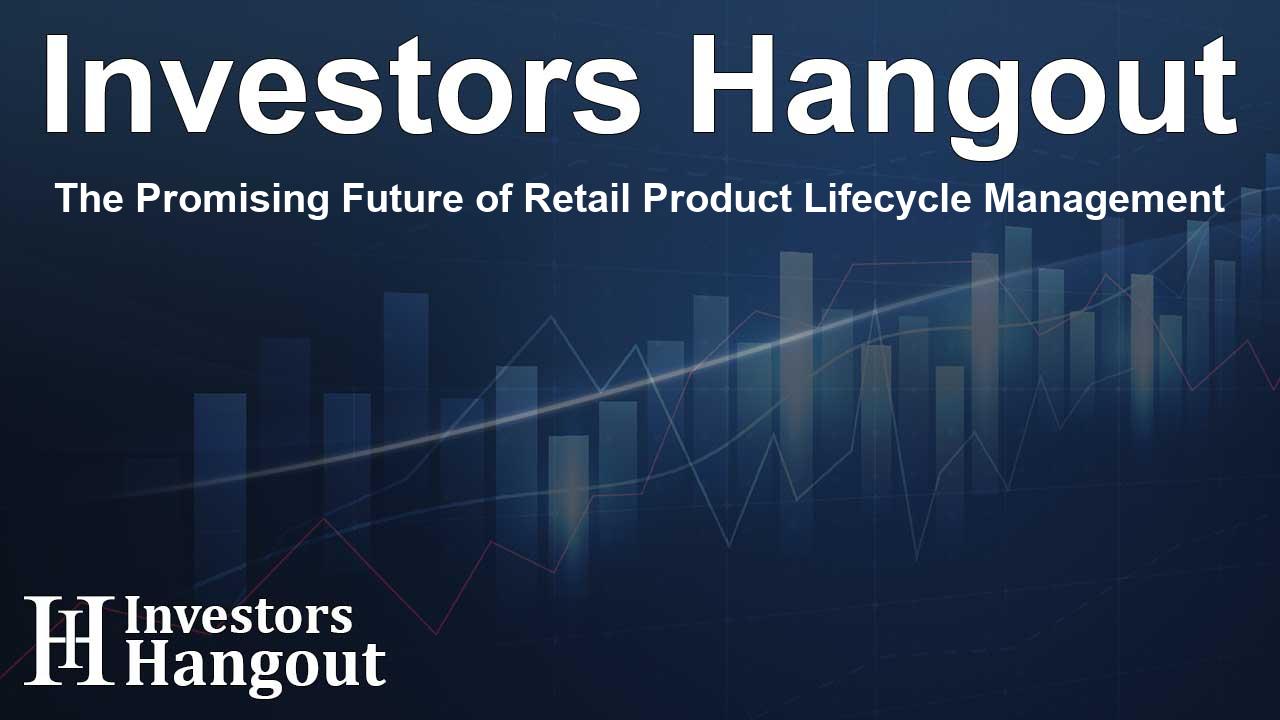The Promising Future of Retail Product Lifecycle Management

Overview of Retail Product Lifecycle Management (RPLM) Market Growth
The Retail Product Lifecycle Management (RPLM) market is experiencing transformative changes, showcasing promising growth potential. Recent research from QKS Group indicates that the market is expected to reach $1.16 billion by 2030, reflecting a compound annual growth rate (CAGR) of 14.5% from 2023 to 2030. This rapid expansion illustrates the increasing importance of RPLM solutions for retailers striving to stay competitive in a dynamic marketplace.
Key Factors Driving Market Growth
Several pivotal factors are driving the growth of the RPLM market. A primary motivation is the mounting pressure on retailers to innovate quickly and efficiently. In the contemporary retail landscape, where consumer preferences evolve rapidly, businesses must reduce their time-to-market by streamlining product development cycles. RPLM systems provide an effective framework to manage these processes, allowing retailers to enhance their product offerings while adhering to quality and compliance standards.
Sustainability as a Primary Driver
Additionally, sustainability has emerged as a significant influencer in this space. Retailers are increasingly prioritizing eco-friendly practices and transparency in their sourcing and production methods. RPLM solutions facilitate this paradigm shift by improving material tracking, lifecycle assessments, and compliance with environmental regulations. As consumers demand more ethical and sustainable products, businesses that can showcase their commitment to sustainability will likely gain a competitive edge.
Technological Advancements Fueling Change
Advancements in technology play a critical role in reshaping RPLM systems. The integration of artificial intelligence (AI) and machine learning (ML) enables predictive analytics, helping retailers forecast trends and optimize their inventories. These technologies provide essential insights into consumer preferences, allowing businesses to respond more effectively to market demands. Furthermore, the adoption of cloud-based RPLM solutions enhances collaboration among teams, offering more flexibility and scalability for businesses engaging in global commerce.
Significant Market Segments
The RPLM market can effectively be segmented based on application, industry, and geographic location. By application, the market serves a broad spectrum of businesses, including small to medium enterprises (SMBs), large corporations, and specialized firms. Major industries benefiting from RPLM solutions range from retail and eCommerce to logistics, transportation, and manufacturing.
Application-Specific Insights
Additionally, industries such as healthcare, automotive, and food and beverage are increasingly integrating RPLM systems to enhance their operational efficiency and product innovation. The strategies adopted by leading players in this market highlight a clear focus on refining processes to align with consumer expectations while ensuring profitability.
Current Trends Shaping the RPLM Landscape
As the retail space continues to evolve, several key trends are shaping the future of RPLM. The movement towards sustainability and the circular economy is compelling retailers to adopt innovative practices in product lifecycle management. This trend is underscored by the rise of digital twins and cloud deployments, which provide businesses with the tools necessary to optimize product designs and predict performance.
Adoption of AI and Mobility
Furthermore, mobile-enabled RPLM solutions and the integration of the Internet of Things (IoT) allow for real-time data collection and insights from production lines and retail environments. This ability to gain immediate visibility into operational processes will be pivotal in driving the industry forward.
Conclusion: Navigating the Future of Retail
The Retail Product Lifecycle Management market is on the brink of considerable growth as retailers seek to enhance efficiency, foster innovation, and meet the ever-changing demands of consumers. By leveraging advanced RPLM technologies, businesses can not only accelerate their product lifecycles but also adhere to sustainability practices, ensuring they remain relevant in a competitive landscape.
Frequently Asked Questions
1. What is Retail Product Lifecycle Management (RPLM)?
Retail Product Lifecycle Management (RPLM) is a system that enables retailers to manage the entire lifecycle of a product, from conception and design through production and sale.
2. What factors are driving the growth of the RPLM market?
The growth is primarily driven by the need for quicker time-to-market, sustainability concerns, and technological advancements in artificial intelligence and cloud computing.
3. How is sustainability influencing RPLM practices?
Sustainability drives retailers to adopt eco-friendly practices, transparency in sourcing, and product lifecycle management systems that facilitate sustainable practices.
4. What technological advancements are impacting RPLM?
Technological advancements, notably AI, ML, and IoT, are enhancing RPLM capabilities, enabling predictive analytics, real-time visibility, and improved collaboration across teams.
5. Which industries are adopting RPLM solutions?
Various industries, including retail, eCommerce, healthcare, automotive, and food and beverage, are increasingly leveraging RPLM solutions to drive innovation and operational efficiency.
About The Author
Contact Henry Turner privately here. Or send an email with ATTN: Henry Turner as the subject to contact@investorshangout.com.
About Investors Hangout
Investors Hangout is a leading online stock forum for financial discussion and learning, offering a wide range of free tools and resources. It draws in traders of all levels, who exchange market knowledge, investigate trading tactics, and keep an eye on industry developments in real time. Featuring financial articles, stock message boards, quotes, charts, company profiles, and live news updates. Through cooperative learning and a wealth of informational resources, it helps users from novices creating their first portfolios to experts honing their techniques. Join Investors Hangout today: https://investorshangout.com/
The content of this article is based on factual, publicly available information and does not represent legal, financial, or investment advice. Investors Hangout does not offer financial advice, and the author is not a licensed financial advisor. Consult a qualified advisor before making any financial or investment decisions based on this article. This article should not be considered advice to purchase, sell, or hold any securities or other investments. If any of the material provided here is inaccurate, please contact us for corrections.
